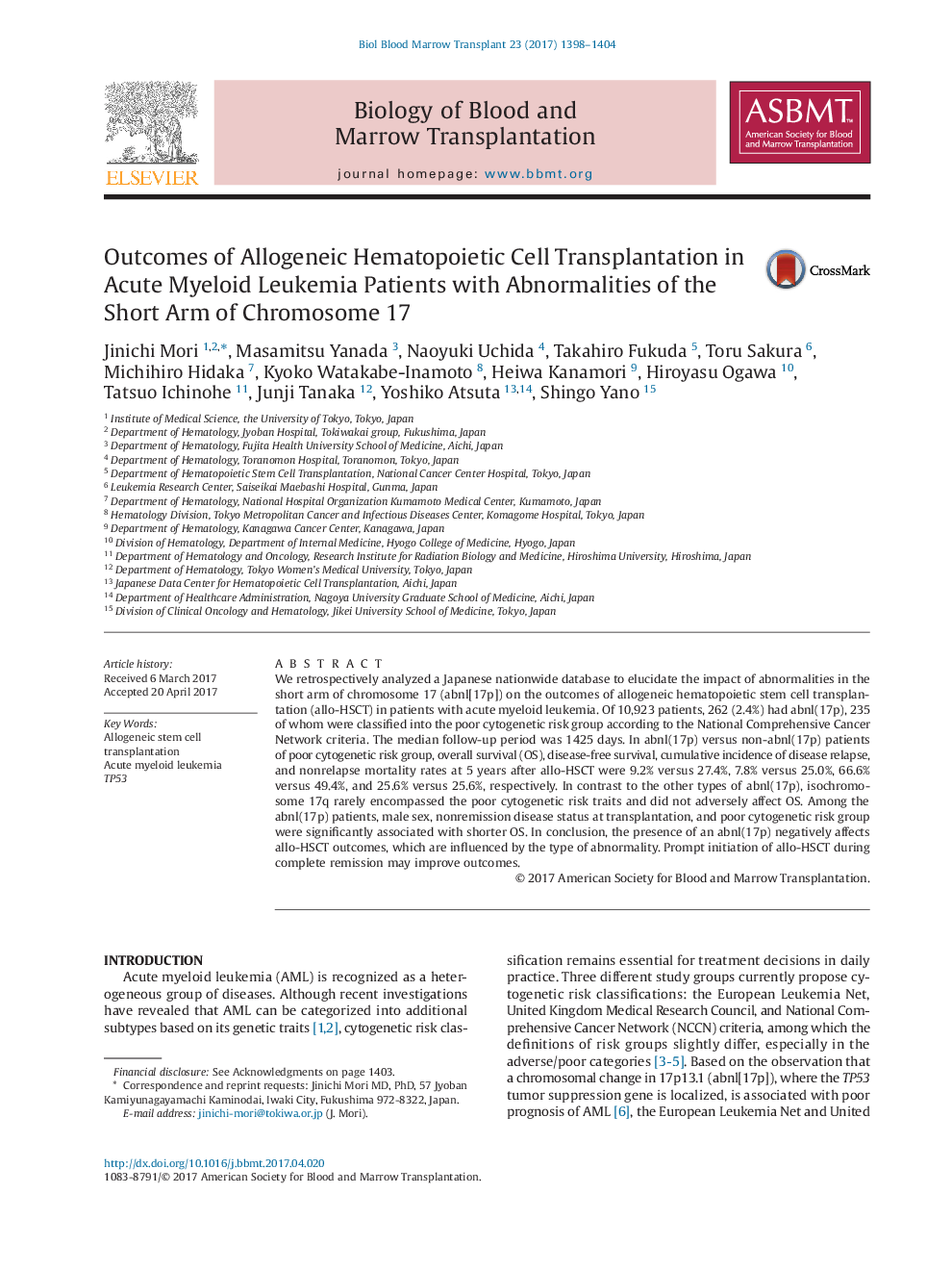| Article ID | Journal | Published Year | Pages | File Type |
|---|---|---|---|---|
| 5524128 | Biology of Blood and Marrow Transplantation | 2017 | 7 Pages |
â¢Patients with abnormal(17p) have dismal outcomes of allogeneic stem cell transplantationâ¢Among abnormal(17p), isochromosome 17q did not adversely affect overall survivalâ¢Unlike results of a previous study, our results demonstrate that remission at transplantation was associated with a favorable outcome
We retrospectively analyzed a Japanese nationwide database to elucidate the impact of abnormalities in the short arm of chromosome 17 (abnl[17p]) on the outcomes of allogeneic hematopoietic stem cell transplantation (allo-HSCT) in patients with acute myeloid leukemia. Of 10,923 patients, 262 (2.4%) had abnl(17p), 235 of whom were classified into the poor cytogenetic risk group according to the National Comprehensive Cancer Network criteria. The median follow-up period was 1425 days. In abnl(17p) versus non-abnl(17p) patients of poor cytogenetic risk group, overall survival (OS), disease-free survival, cumulative incidence of disease relapse, and nonrelapse mortality rates at 5 years after allo-HSCT were 9.2% versus 27.4%, 7.8% versus 25.0%, 66.6% versus 49.4%, and 25.6% versus 25.6%, respectively. In contrast to the other types of abnl(17p), isochromosome 17q rarely encompassed the poor cytogenetic risk traits and did not adversely affect OS. Among the abnl(17p) patients, male sex, nonremission disease status at transplantation, and poor cytogenetic risk group were significantly associated with shorter OS. In conclusion, the presence of an abnl(17p) negatively affects allo-HSCT outcomes, which are influenced by the type of abnormality. Prompt initiation of allo-HSCT during complete remission may improve outcomes.
